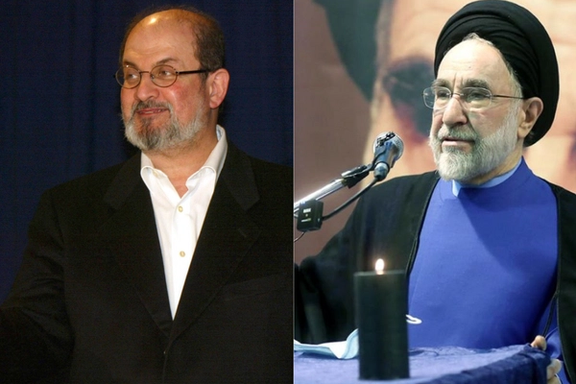Iran’s Ex-President Khatami Implicated In Fatwa Against Rushdie

A new report has revealed that Iran’s former President Mohammad Khatami had a role in issuing the fatwa by Islamic Republic’s founder Rouhollah Khomeini against author Salman Rushdie.

A new report has revealed that Iran’s former President Mohammad Khatami had a role in issuing the fatwa by Islamic Republic’s founder Rouhollah Khomeini against author Salman Rushdie.
According to a report by BBC, Khatami – then a minister -- held a meeting with two Pakistani-British Islamic scholars, Kalim Siddiqui and Ghayasuddin Siddiqui, just hours before Khomeini issued the fatwa, a formal proclamation that called for the murder of Rushdie. Before the February 1989 decree, Iran had largely ignored the Satanic Verses, the controversial book that brought about 30 years of death threats for the novelist.
The two Sunni clerics had arrived at Tehran’s Mehrabad Airport to get home to the UK after attending a conference in the Iranian capital to mark a decade since the country's Islamic Revolution. Inside the airport, they bumped into Khatami -- who asked to have a private word with Kalim. "They went to a corner and chatted," Ghayasuddin later explained in the BBC's 2009 documentary, recounting that "He (Khatami) was asking my view about Salman Rushdie - and I told him, 'You know, something drastic has to happen.'"
Khatami then met with Khomeini, and a few hours later the fatwa was issued, not only against Rushdie but also its publishers, editors and translators, reportedly without Khomeini even reading the novel. "I call on all valiant Muslims wherever they may be in the world to kill them without delay" it read.
Kalim later said he believed he may have been "partially responsible" for the fatwa. In 2019, Ed Husain, a writer on religion and extremism, said that Khomeini had not been minded to do anything about Rushdie; it had been the British imam who had urged the autocratic political and religious leader that he "must do something for the Muslims".